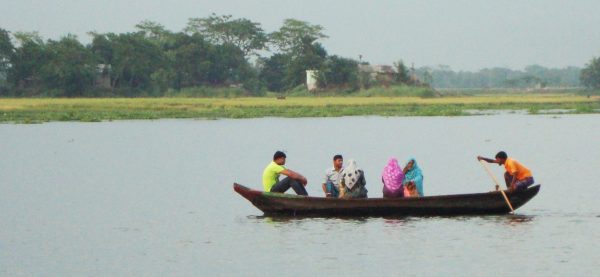
Mohammad Zobair Hasan :: Bangladesh has become a lower-middle income country by leading the participation of everyone in the society. Bangladesh promises to develop 17 Sustainable Development Goals (SDG) and 169 specific targets aimed at eradicate poverty, saving Earth and ensuring prosperity for all. It is mentioned in various documents of the government that even though the sustainable development targets are more ambitious and it requires a lot of resources to implement it, Bangladesh also promises to achieve SDG by 2030. Therefore, it is very important to have adequate and fair budget allocation for proper planning and implementation of different strategic schemes, mid-term and long-term national strategies adopted by the government. At the end of second year of SDG implementation, for example one goal (water and sewerage for all: ensuring sustainable management and availability), where is the public participation and budget allocation and availability, and what is the present situation of some union of a district? It has been highlighted on this position paper for the watershed project.
The country’s only delta Bhola, situated in the lower Ganges Belt Bhola Sadar Upazila consists of 19 preserved ponds and 31 canal where ponds are used for fisheries, baths and other works. The government has taken re-digging program in the country and Bhola district is also under this program. As water source, the pond water is readily available and the water used for the marginal population is said to be in Water Rules-2017. The Department of Public Health Engineering (DPHE) has recently started the activities of digging 7 ponds. Besides, most of the canals are filled up and sometimes water bodies are being polluted and contaminated due to various household and business waste, one of these is ‘Bhola canal’ which is the heart of of this Upazila. Different steps have been taken lately for its maintenance. According to Bangladesh Delta Plan 2100 and budget allocation, the topics mentioned are very involved. Besides, according to the Bangladesh Bureau of Statistics 2011, 97% of families living in Bhola drink tubewell water. The remaining few (0.6%) of households drink tap water and 2.4% drink water from other sources. 64.6% of households using sanitary latrines and 31.6% of the population use unhygienic latrines and 3.8% of households do not have toilet facilities.
According to the goal 6 of 17 sustainable development goals, by the year 2030, everyone will have to ensure safe water and sanitation. To achieve this goal, special attention should be taken to ensure local budget allocation. In the year 2017-18 fiscal year, Bhola Union Parishad’s water and sanitation budget was allocated only 51 taka per capita, which is one fold of 9 against the demand (BDT 483). However, it is hoped that water, sanitation and hygiene sectors were not seen separately before, but due to set up specific goals and targets, the concerned institutions and local government are now giving necessary support to the allocation of this sector. In the next fiscal year 2018-19, the demand for more allocation for the water, sanitation and hygiene in the budget, especially for the people living below the poverty line, is being conveyed from the various clusters of the society. In order to implement the SDG by the Planning Commission, the additional allocation of the desired amount of money 1148 tk. need to start from now.
At the same time, it is also underscored by water management citizen committee to allocate budget as well as WASH related material i.e. Tubewell to socially excluded people like Bede (nomadic), Coolie, Midwife, Daily Labour, Yogurt producer in the coming Fiscal Year 2018-19 and Addition of water and sanitation management to the disabled need to be included in the integrated water resources management which is utmost demands.
The main aim of the “Watershed-empowering citizen” program is to increase the access to water, sanitation and hygiene rights and integrated water resources management of all the people, especially the lagged population. The initiative believes that this will create an illustration, so that after the completion of the project it will ensure the sustainable system as a public importance sector.
According to the ministry / division, after analyzing relevant data / information deficits by completing mapping of goals and targets, as they are not implemented at the local level, taking necessary steps and its benefits are not appearing. Yet 4 percent of the people of BholaSadar Upazila do not have any toilet. It is understood that compared to the restructuring of 7 ponds and the budget allocation and the infrastructural and availability of water and sanitation, it is very necessary to increase investment in this sector. Local government and related service providers need to be urged to be more active in this matter. SDG cannot be easily achieved, must be done.
Writer : Research Director, DORP, Email: research@dorpbd.org




